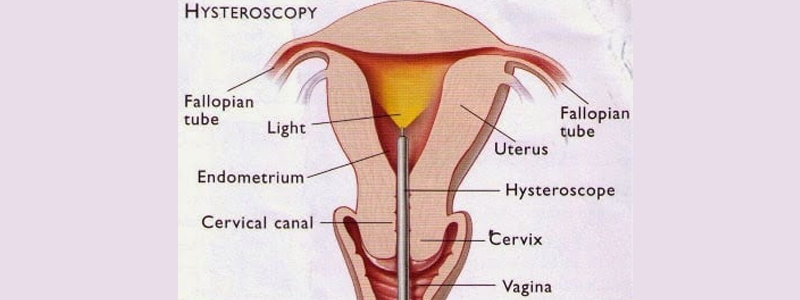
In the journey towards assisted reproductive technologies like in vitro fertilization (IVF), pre-IVF hysteroscopy emerges as a crucial diagnostic procedure. This minimally invasive technique allows fertility specialists to examine and evaluate the uterine cavity, providing valuable insights into potential obstacles that may hinder successful implantation and pregnancy.
Hysteroscopy involves the insertion of a thin, flexible tube with a light and camera (hysteroscope) through the cervix into the uterus. Prior to embarking on the IVF process, a pre-IVF hysteroscopy is often recommended for several reasons.
One of the primary objectives of pre-IVF hysteroscopy is to identify any abnormalities within the uterine cavity. These abnormalities may include polyps, fibroids, adhesions, or congenital malformations. The presence of such conditions can impact the chances of successful implantation and may contribute to recurrent miscarriages.
If polyps or fibroids are detected during the hysteroscopy, they can be surgically removed at the same time. This is crucial, as these growths may interfere with embryo implantation or cause irregular bleeding. By addressing these issues prior to IVF, the chances of a successful implantation and pregnancy are optimized.
The thickness and health of the uterine lining play a vital role in successful embryo implantation. Hysteroscopy allows fertility specialists to assess the condition of the endometrium, ensuring it is receptive to the embryo. If any irregularities are observed, appropriate measures can be taken to enhance the uterine lining, such as hormonal treatments.
In some cases, previous surgeries or infections may lead to the formation of adhesions or scar tissue within the uterus. These adhesions can interfere with the normal functioning of the uterus and hinder embryo implantation. Hysteroscopy allows for the visualization and, if necessary, the removal of such adhesions.
By addressing and correcting uterine abnormalities before initiating IVF, the overall success rates of the fertility treatment are improved. A healthy uterine environment is essential for embryo implantation and subsequent pregnancy. Pre-IVF hysteroscopy acts as a preemptive measure to enhance the chances of success in the IVF process.
Each individual's reproductive anatomy is unique, and pre-IVF hysteroscopy enables fertility specialists to tailor the treatment plan according to the specific needs of the patient. The information obtained from the hysteroscopic evaluation guides the development of a personalized approach to maximize the chances of a successful outcome.
In conclusion, pre-IVF hysteroscopy serves as a critical step in the fertility journey, providing a comprehensive assessment of the uterine cavity and allowing for the correction of any identified abnormalities. This proactive approach not only enhances the chances of successful IVF but also contributes to a more personalized and effective fertility treatment strategy. As advancements in reproductive medicine continue, the integration of pre-IVF hysteroscopy into standard practice underscores its significance in optimizing outcomes for individuals undergoing assisted reproductive technologies.
Contact Dr Archana Rajendran, For the Best IVF Treatment by the leading & finest IVF Specialist in Thane West.